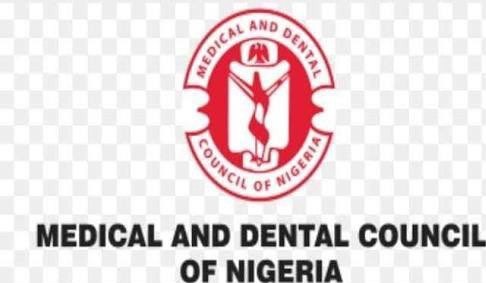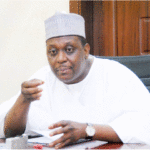The Medical and Dental Council of Nigeria (MDCN) recently announced that 469 foreign-trained medical and dental graduates out of the 826 that appeared for the examination conducted by it failed. This was disclosed during the formal inauguration of the MDCN’s 1000-seater auditorium and the induction ceremony for foreign-trained medical and dental graduates. Chairman of the Board of MDCN, Abba Waziri Hassan, said the poor performance of the foreign-trained medical doctors “was a reflection of the quality of training they received in some of the countries abroad”.
According to the MDCN board chairman, the test was conducted at the Usmanu Danfodiyo University Teaching Hospital (UDUTH), Sokoto, in November 2021. Giving a further breakdown, he said “341 medical doctors, representing 41.3 per cent and 16 dental surgeons, representing 53.3 per cent passed”. This means only 357 candidates out of the 826 medical and dental candidates that sat for the examination passed. He also disclosed that the overall percentage pass was lower than the previous one held in June 2020 at the University College Hospital, Ibadan, Oyo State.
- Reading competition: 3 students awarded Umrah tickets, N500,000 cash each
- NIGERIA DAILY: Electoral Act: Ways In Which The 2023 Election Will Be Radically Different
Although Hassan explained that MDCN examination was conducted under a transparent manner in partnership with the Joint Admissions and Matriculation Board (JAMB), which handled the Computer Based Test (CBT) aspect of the examination, he added that going abroad for medical study was not entirely wrong given the fact that the country lacks enough vacancies to absorb qualified candidates in its medical and dental colleges. However, he advised parents to consult the schools’ guide on the MDCN website and the World Directorate of Medical Schools (WDMS) before choosing which medical or dental school to send their children abroad.
It would be recalled that a group of foreign-trained doctors who failed a similar examination had on November 29, 2017 staged a protest to the National Assembly over their failure. This followed the result, which showed that 437 out of the over 680 foreign-trained doctors who sat for the examination failed. They alleged that the council’s assessment was full of irregularities. They accused the MDCN of assigning 50 students to one consultant for training in a teaching hospital during the 16-week orientation course.
There are public insinuations that the abysmal failure is a consequence of perceived envy by home-grown medical specialists against foreign-trained doctors. While this cannot go beyond the level of allegation, it gives Nigerians pronounced worry that the mass failure has remained consistent in recent years; a strong reason for the MDCN and government to look at all the issues connected to the matter.
Consistent high failure rate in the same exam technically suggests that something is wrong either with the examination or the candidates. While consistent low success rate could possibly be a reflection of high-reliability level of the test, there’s yet room for the MDCN to interrogate the extent to which its test items are valid; accurately testing what they are supposed to test. The measurement principle, in which “the degree to which evidence and theory support the interpretation of scores obtained by candidates” cannot, therefore, be ignored by MDCN.
The medical curriculum is believed to globally share common features except for few peculiarities such as tropical diseases that do not exist in Europe. So, if the Nigerian standard in medical training or the MDCN exam were the problem, few interrogations are indeed relevant here. Would doctors trained in Nigeria pass the same test when subjected to it? Is it by chance that America and Saudi Arabia routinely visit the country to recruit Nigeria-trained doctors? Why have doctors who trained in specific countries always been part of the failure list in the same test? The answers to these questions should prompt further investigations into some of the institutions attended by Nigerian doctors that trained abroad. Meanwhile, there are reports that doctors who trained in the UK, USA, Canada, and Australia do better in the MDCN test.
This narrative of mass failure in MDCN cannot continue because Nigeria already has enough substandard and unemployable graduates on the streets. The MDCN and the National Universities Commission (NUC) must be interested in proffering a workable solution, which lies in its root cause. Majority of students who seek medical education abroad were compelled mainly by the limited capacity of existing medical and dental colleges in the country. Failure to meet UTME or university cut-off points could be the reason for which few others, who can afford, go to study medicine overseas including African countries where such requirements are not admission prerequisites.
The establishment of specialized universities of medical sciences, public and private, which are currently few, would also increase students’ access to medical training in the country. To rescue the fate of foreign-trained doctors and build their confidence in the mandatory test, Daily Trust calls on MDCN to revisit the duration, structure and methodology of the mandatory training programme for foreign-trained doctors, which usually precedes the examination.

 Join Daily Trust WhatsApp Community For Quick Access To News and Happenings Around You.
Join Daily Trust WhatsApp Community For Quick Access To News and Happenings Around You.
